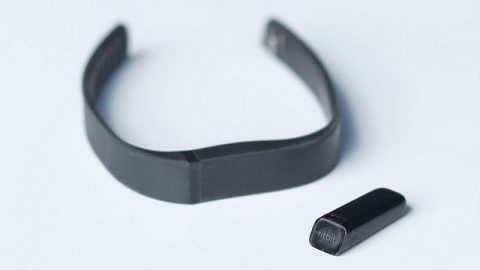If you look closely at the crowds in front of you on your way to class, the hectic shoppers at the grocery store or the people around you at the gym, you will surely see a myriad of colorful wrist-accessories. Not bracelets, but activity trackers. What do these nifty devices tell you? Well, that depends on which device you have and how much you believe what it’s telling you.
They are supposed to tell you how many steps you’ve taken in a day, how many miles you’ve traveled, how many flights of stairs you’ve escalated, what your heart rate is, how many active minutes you’ve had, what your sleep was like and whether or not Mom has replied to your text asking for more money. As companies come up with more and more features to tell you just how fit you are, it is important to take a step back and consider whether the information you’re ingesting is accurate before running around in circles to meet your step goal at night.
So, what’s the deal, are they accurate? It kind of depends.
Let’s start with a common problem. A lot of controversy has followed activity trackers and their suspiciously convenient wrist heart rate monitors – gone are the days of having to strap an uncomfortable strip of plastic to your chest.
According to the America College of Cardiology, your best bet in tracking your health is still that Superman emblem of plastic if you need an accurate hear rate measurement. The wrist heart rate monitors have been found to under or overestimate the actual limit by as many as 34 beats per minute; however, if you are just looking to measure your resting heart rate or if you are a treadmill enthusiast, the wrist heart rate is fairly accurate.
According to an article in NPR, fitness trackers are often accurate in average heart rate measurements, but not in estimating the calories you burn in a day. This finding is especially relevant for people who are trying to lose weight, which of course, is a huge problem for people using them for just that reason.
But at least they track steps well right? A study in the Public Library of Science, showed that a specific activity tracker, the Fitbit Flex for instance, while moderately accurate in its counting, actually incorrectly estimated steps for activities such as walking, stair climbing and jogging.
That being said, another study in the International Journal of Behavioral Nutrition and Physical Activity, found that the steps were generally accurate in the activity trackers of the Fitbit and the Jawbone.
In conclusion, activity trackers are only useful for some of their functions. When it comes to step counting, they do their job fairly well and you can bet that if it told you that you met your 20,000 step goal, you probably hit at least around that. We can’t say the same for wrist-heart rate measurements. While that prospect is rather annoying, especially with these companies toting this feature as a huge selling point, it is still worth considering the technology to estimate heart rate based on blood volume measurements.
Can you use the device to measure your balance of energy in a day? Studies show you probably should not rely on it. Not knowing your total calorie expenditure is a bit of a bummer, given that if you are wearing an activity tracker you are most likely interested in tracking it.
From personal experience, I compared my heart rate strap to my wrist heart rate monitor and they were, as studies show, very different. My mileage on my wristband often overestimates, calling a three-mile run a four-mile run and so on. Being as I do not count all my steps in a day, I will have to go with the research on that one.
My activity tracker, though, provides other things for me. It tells me to “Move!” if I have been sitting too long (which can be annoying if you are sitting at a desk in class). It encourages me to meet a step goal in a day, thus pushing me to take the stairs or walk to class instead of taking the bus. It allows me to track my workouts and, being that I have a GPS wristband now, track my runs. In short, while criticisms are hurled at these fitness trackers, some of which may be true, at least we can say that they are contributing to the greater good of motivation and commitment to health and fitness at a time when society is struggling to combat obesity and sedentary behaviors.
Annamarie Wadiak can be reached at [email protected].



















